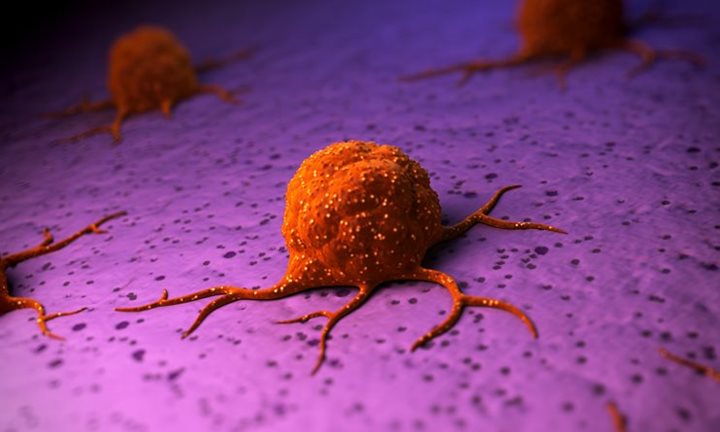Cancer is one of the leading causes of death worldwide, and it manifests itself in many forms in virtually every part of the human body. Often, the specific cause of cancer is unknown and attributed to some combination of genetic, environmental, and lifestyle factors.
But there is good news! With prevention and early detection, along with today’s medical technology advancements and research, survival rates can increase up nearly 70%! Of course, this varies with different types of cancer as some are significantly more fatal and detrimental than others. If you experience any of these 16 early signs of cancer, it is important to seek help ASAP:
1. Fatigue
This “tiredness” is different than the type you experience after a long day at work, or after a long and sweaty hike. The type of fatigue associated with cancer cannot be curbed with a shot of espresso or a solid two hour nap. This fatigue is constant, present in day to day activities, and may make it difficult for someone to move their arms and legs, even. This is particularly seen in leukemia, stomach cancer, and colon cancer as there is significant blood loss.
2. Losing pounds
Significant weight loss is often looked at in a positive light in today’s society. However, when this weight is lost without an actual reason or explanation, it should probe further investigation. This weight loss can be associated with a decreased appetite, and is generally associated with stomach cancer or pancreatic cancer.
3. Bloating
A bloated or “swollen” abdomen is indicative of various cancers. Colon cancer can result in blockage inside the colon, causing bloating. Ovarian cancer and stomach cancer are also both associated with bloating. This bloating can cause you to feel full when you haven’t eaten, or make you feel more quickly when you are eating.
4. Weird bumps or lumps
These unusual lumps can be found anywhere on the body, and can be felt through the skin. They should be oddly stiff, not painful, and take on an odd shape. If you experience this, have it checked out immediately.
5. Pain
Obviously, pain is indicative of many health conditions. It’s our bodies telling us that something is wrong.
6. Dyspnea
Short of breath? Difficulties breathing? This is associated with a tightness in the region and an overwhelming feeling, as if you are being suffocated. This can occur for a variety of reasons as it’s associated with many different types of cancers.
7. Skin changes
Yellowing or darkening of the skin or patches of skin are telltale signs that something is wrong inside of your body. Changes in the appearance or size of a mole may be indicative of skin cancer. Itching without source (e.g. insect bite) or an odd skin appearance also may be causes for concern.
8. Hot and cold flashes
This may be associated with a fever and cold sweats during the night time when you are asleep. Fevers are a common sign of leukemia, cancer of the blood. Even if it isn’t due to cancer a high grade fever, which a body temperature of over 38 degrees, the fever should be closed monitored and one should seek appropriate medical treatment.
9. Toilet use changes
Changes in your ability to use the bathroom, changes in your stool, etc.

Source: Thinkstock/ Wavebreakmedia Ltd
10. Urinary changes
If you experience pain or difficulty using the bathroom when peeing, this could be indicative of cancer in your bladder or reproductive organs.
11. Persistent coughing
Lung cancer is the most treatable in early stages so it’s important to acknowledge that your cough could be due to cancer, along with the many other possibilities. You might have chest pain, or mucus when you cough, and it might seem like your cough is chronic and never going away!
12. Dysphagia
You might have a hard time swallowing food or drink, resulting in less motivation to eat and drink to avoid coughing, spitting, or choking as you try to get your fill. Usually this is progressive in that initially it is only larger pieces of food that is difficult to swallow, but it can reach the point where even liquids cause significant difficulties. Generally this is indicative of a cancer in your head and throat region, or in the stomach.
13. Red and white patches/sores
Look in a mirror, open up your mouth, and stick your tongue out. If you see red or white sores or patches, you might want to seek a professional opinion. This could be a sign of many things, and cancer is definitely on that list.
14. Frequent infections
Pneumonia or bronchitis can be signs of lung cancer, but infections anywhere in the body that go away and then come back, again and again, are indicative that something is going wrong inside your body. It’s time to investigate that infection further.
15. Hoarse voice
You can have a hoarse voice from being sick from the common flu, but if your voice isn’t back to normal in about three weeks, it’s probably time to see a professional about it, as it can be an early sign of cancer.
16. Bleeding
Blood in the urine is often a sign of bladder cancer or kidney cancer. Blood in the stool can be a sign of rectal cancer or colon cancer. Other than menstruation, vaginal bleeding is abnormal and should be examined by a medical professional to determine the cause and required treatment.
Sourced from: Lifed
Featured Image: Thinkstock/ Eraxion








